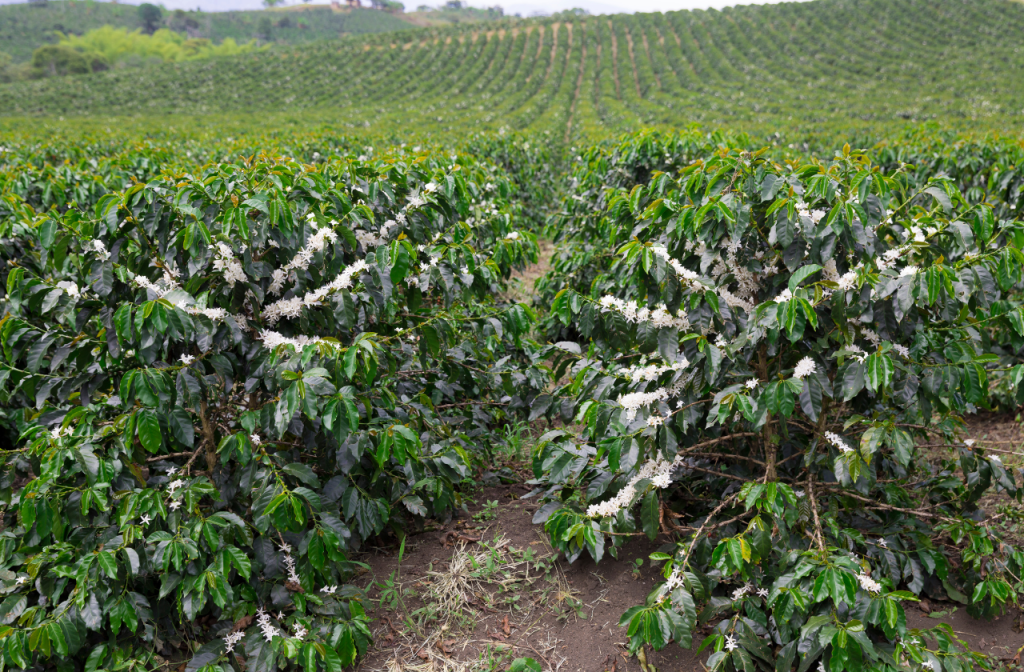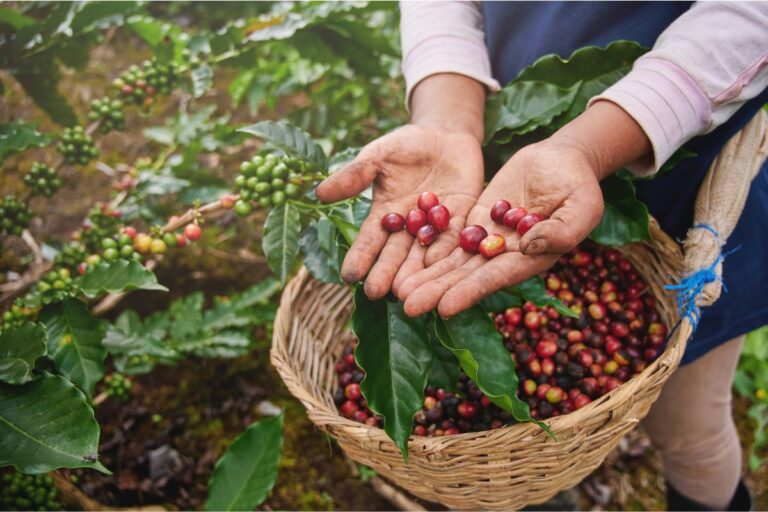Organic Coffee Farming Methods
Coffee is among the most consumed beverages internationally. Millions of people rely on it to start their day. However, the production of coffee beans has significant environmental and social impacts, including deforestation, soil degradation, and unfair labor practices. As a result, there has been an increased interest in sustainable and organic coffee farming methods.
Organic coffee farming is a method of coffee production that uses environmentally friendly and sustainable practices without using synthetic fertilizers, pesticides, or GMOs. Organic farming relies on natural resources and ecosystem services to produce high-quality coffee.
The demand for organic coffee has been increasing in recent years as coffee consumers become more conscious of the significant social and environmental impact of their purchases. Organic coffee farming offers a more sustainable and ethical way to produce coffee while also enhancing the quality of the beans. Here we will explore the key principles of organic coffee farming, its benefits, methods, and challenges.
What is Organic Coffee Farming?
Organic coffee farming is a method of coffee production that relies on sustainable and environmentally-friendly practices. It involves using natural resources and ecosystem services to produce high-quality coffee beans without the use of pesticides, synthetic fertilizers, or genetically modified organisms.
Certification requirements for organic coffee farming vary depending on the country or region, but generally, organic farming certification involves meeting specific criteria and standards set by a third-party organization. For example, in the United States, organic coffee farming is regulated by the USDA National Organic Program (NOP), which requires farmers to follow specific guidelines for soil management, pest control, and crop rotation.
The key principles of organic farming include the following:
Biodiversity: Organic coffee farming emphasizes the importance of biodiversity, which is the variety of living organisms in an ecosystem. Farmers aim to increase biodiversity by planting different types of coffee trees and other crops, which can create a more balanced ecosystem, prevent soil erosion, and enhance the resilience of the farm to climate change.
Soil Health: Organic coffee farming focuses on maintaining healthy soil through natural practices such as crop rotation, composting, and the use of cover crops. Healthy soil helps to retain moisture, prevent erosion, and promote the growth of strong coffee trees with high-quality beans.
Natural Pest Management: Instead of using synthetic pesticides, organic coffee farmers rely on natural pest control methods, including companion planting, crop rotation, and using natural predators such as birds and insects. This approach helps to maintain the balance of the ecosystem and reduce the use of physically harmful chemicals that can damage the environment and human health.
Farming coffee beans with these methods is a sustainable and environmentally-friendly approach to coffee production that relies on natural practices to produce high-quality coffee beans. By following the key principles of organic farming, farmers can create a more balanced ecosystem that is resilient to climate change, promote healthy soil, and significantly reduce the use of harmful chemicals that can cause harm to the environment and human health.

Benefits of Organic Coffee Farming
Organic coffee farming offers a range of benefits for the environment, society, and the economy. Here are some of the major benefits of organic coffee farming.
Organic coffee farming reduces the use of synthetic pesticides and fertilizers, which can pollute the soil, water, and air. By relying on natural pest management and soil conservation practices, organic farmers can create a healthier ecosystem that supports a diversity of plant and animal species.
This approach also helps to prevent soil erosion and maintain soil fertility, which can improve the quality of the coffee beans and reduce the need for costly inputs.
There are several social benefits associated with organic coffee farming, including fair labor practices and community development initiatives. This means that workers are paid fairly and have access to basic amenities such as healthcare and education.
Additionally, organic coffee farming often supports the development of local communities by creating job opportunities and promoting sustainable development practices.
Organic coffee farmers can often command higher prices for their beans, as consumers are willing to pay a premium for sustainably produced coffee. Organic coffee farming can reduce input costs by relying on natural pest management and soil conservation practices. This can result in higher profits for farmers and a more sustainable business model.
This type of coffee farming offers a range of benefits for the environment, society, and the economy. By reducing the use of harmful chemicals and promoting sustainable practices, organic coffee farming can create healthier ecosystems, support fair labor practices, and increase profitability for farmers.
Consumers can support these benefits by choosing to purchase organic coffee and supporting sustainable coffee farming practices.
Organic Coffee Farming Methods
Organic coffee farming relies on a range of sustainable practices to promote healthy ecosystems, high-quality coffee beans, and sustainable livelihoods for farmers. Here are some of the key methods used in organic coffee farming:
- Shade-growing methods.
- Composting methods.
- Crop rotation methods.
- Inter-cropping methods.
- Natural pest management methods.
- Soil conservation and erosion control.
- Water conservation and management.
Shade-grown coffee involves growing coffee trees under a canopy of trees or other vegetation. This approach provides a natural habitat for wildlife, prevents soil erosion, and reduces the need for synthetic fertilizers and pesticides. Additionally, shade-grown coffee often produces beans with unique flavor profiles and is a more environmentally-friendly way to produce coffee.
Composting involves using organic materials such as coffee pulp, leaves, and other plant debris to create a nutrient-rich soil amendment. This approach can help to maintain soil fertility, reduce the need for synthetic fertilizers, and promote healthy coffee trees.
Crop rotation for organic coffee involves planting different crops in a field over time to prevent soil depletion and pests. For example, farmers may alternate planting coffee trees with legumes, which can fix nitrogen in the soil and drastically reduce the need for synthetic fertilizers.
Inter-cropping involves planting different crops together in a field. This approach can create a more diverse ecosystem that supports a range of plant and animal species. Additionally, inter-cropping can help to prevent soil erosion and reduce the need for fertilizers and synthetic pesticides.
Organic coffee farmers often rely on natural pest management methods such as companion planting, using natural predators, and practicing good sanitation. This approach can reduce the need for harmful synthetic pesticides, which can harm the environment and human health.
Farmers of organic coffee use a range of practices to maintain healthy soil, prevent erosion, and improve soil fertility. This can include using cover crops, mulching, and reducing tillage.
Organic coffee farmers use a range of practices to conserve and manage water resources, including drip irrigation, rainwater harvesting, and using shade trees to retain moisture.
Farming coffee with organic methods relies on a range of sustainable practices to promote healthy ecosystems, high-quality coffee beans, and sustainable livelihoods for farmers.
By using practices such as shade-grown coffee, composting, crop rotation, and natural pest management, farmers can reduce their environmental impact and create a more sustainable business model.

Challenges of Organic Coffee Farming
While organic coffee farming offers many benefits, it also presents several challenges for farmers. Here are some of the prevalent challenges faced by organic coffee farmers:
- Higher labor costs.
- Crop yield variability.
- Certification costs.
- Market access.
Organic farming methods often require more labor-intensive practices such as manual weeding, composting, and natural pest management. This can result in higher labor costs for farmers, which can be challenging for small-scale operations with limited resources.
These farming methods can be more unpredictable than conventional farming methods, which can result in lower yields or more variable coffee bean quality. This can make it difficult for farmers to maintain a consistent income and meet the demands of buyers.
Organic certification can be expensive and time-consuming, particularly for small-scale farmers who may not have the resources to navigate the certification process. Certification requirements may vary by region, which can create additional challenges for farmers.
Access to markets can be a challenge for organic coffee farmers, particularly in regions with limited infrastructure or where organic coffee is not well-known. This can limit the potential for higher prices and increased profitability for farmers.
Conclusion
Organic coffee farming offers many benefits for the environment, society, and the economy. It also presents several challenges for farmers, including higher labor costs, yield variability, certification costs, and limited market access. Organic coffee farming can provide a more sustainable and environmentally-friendly way to produce coffee while also promoting fair labor practices and support for local communities.
As consumers, we can support organic coffee farming practices by choosing to purchase organic coffee and supporting organizations that promote sustainable coffee farming practices. By doing so, we can help to promote a more sustainable and equitable coffee industry that benefits farmers, consumers, and the environment.






